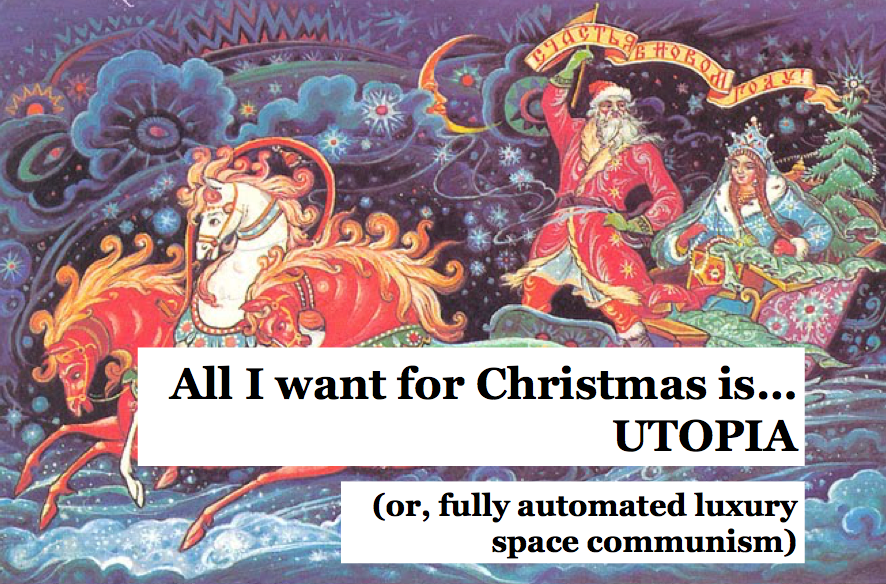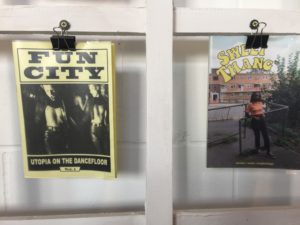Grrrl Zine Fair
The Grrrl Zine Library at Royal Albert Wharf, which opened as a dedicated space for the library and community meetings, recently held a Feminist Christmas Fair on Saturday 9th December 2017. I was asked to contribute to a panel discussion titled "All I want for Christmas is Utopia" with the artist Ayesha Tan Jones and the writer, artist and curator Ama Josephine Budge.
My short talk highlighted a few, mainly (but not exclusively) feminist, utopian novels – that continue the earlier tradition of voyages into fantastical worlds, hidden at the margins of the known map; and which combine stunning exotic locations (the hollow Earth, Mars, mountain-top kingdoms) with the chance to consider how we might improve society. Texts such as Mary E. Bradley Lane's Hollow Earth narrative Mizora: A World of Women (1880-1), Alice Jones & Ella Merchant's Martian utopia Unveiling a Parallel: A Romance (1893), Charlotte Perkins Gilman’s Herland (1915), Alexander Bogdanov’s Red Star (Krasnaya zvezda) (1908), Marietta Shaginian’s Mess Mend, or Yankees in Petrograd (Mess Mend, ili Yanki v Petrograd) (1923) [not technically a utopian novel, but it contains an interesting factory utopia], raise important social and political questions – including gender relations, childcare, the nature of work, technology, architecture and design, and the use of leisure time.
Concluding with reference to William Morris' influential pastoral utopia in News From Nowhere, or, An Epoch of Rest (1890), I suggested that we should recall that since the ambivalent coinage of “utopia” in the punned titled of Thomas More’s book, Utopia in 1516, whose deliberate double entendre suggests both eu-topia (“the good place”) and ou-topia (“no place”), the term has come to focalise many arguments which pejoratively identify visions of the “good life” as escapist, unrealistic and even authoritarian. William Guest’s journey ends, however, with a consideration of the relationship between what the utopian philosopher Ernst Bloch called “abstract” and “concrete” utopian functions: between abstract dreams that express utopian longing and their concrete embodiment within objectively-possible social goals or movements. This distinction is crucial to a defence of utopian thinking in literary analysis but also betrays the common conflation of compensation (desire, escapism, daydreaming) with anticipation (hope, mobilisation, collective struggle).
Here are a couple of photos from the Grrrl Zine Library – it's a great space!











 Dr Caroline Edwards is Senior Lecturer in Modern & Contemporary Literature at Birkbeck, University of London. Her research and teaching specialisms are in 21st century literature and critical theory, science fiction and post-apocalyptic narratives, Marxist aesthetics, and utopianism.
Dr Caroline Edwards is Senior Lecturer in Modern & Contemporary Literature at Birkbeck, University of London. Her research and teaching specialisms are in 21st century literature and critical theory, science fiction and post-apocalyptic narratives, Marxist aesthetics, and utopianism.
Follow / Contact